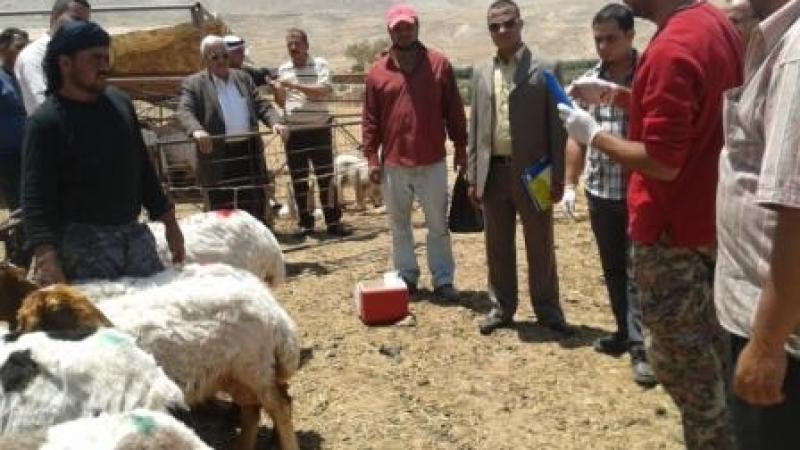Exchange builds farmer resilience to climate change

ICARDA recently facilitated a farmer-centered knowledge exchange involving producers from both Jordan and Iraq – part of an on-going initiative to strengthen community resilience to climate change. The exchange brought three families from Iraq where they interacted with technical staff and shared information with Jordanian producers, enhancing the knowledge and skills that both groups will need to sustain production against a backdrop of rising temperatures and more variable rainfall.
Producers in both countries face an uncertain future. An ICARDA project, funded by IFAD, is therefore working with barley and livestock producers in an attempt to reverse worrying trends now inflicting agricultural production systems. A serious drought in 2008, for instance, caused a significant loss of barley in both countries: the area devoted to barley production decreased by 50% in Jordan, and by 675,000 hectares in Iraq.
Exchange programs were tailored to the requirements of male and female farmers: the men’s program promoted proven crop and livestock management techniques, and the women’s demonstrated methods to improve dairy production and processing. Women were instructed on various milk processing techniques: the preparation of sheep milk, skimming milk, processing yogurt, and butter production.
The Iraqi women visited two Jameed producers – a type of traditional dried yogurt that forms a core part of the Jordanian diet and is the basis of the national dish, Mansaf – and participated in practical observations of other dairy products, including labaneh, white cheese, and ghee. The benefits of utilizing a milk cream separator were subsequently discussed and this technology was demonstrated to the visiting women.
The male farmers observed a number of proven techniques which hold significant potential for barley and livestock producers in Iraq. These include zero tillage, the practice of not plowing farmlands and leaving crop residue in the field for improved soil fertility and water conservation, which could help farmers to mitigate the worst effects of drought. They also studied the application of hormones to synchronize ewes for timely lambing and improved twinning rates.
The challenges farmers face in the region was discussed at length: feed shortages, prevalent diseases, and product marketing. In a subsequent visit to the University of Muata, the farmers were informed about suitable feed strategies and efforts to improve sheep productivity. Finally, participants observed the progress of protected agriculture initiatives in the Jordan Valley and the application of water-saving technologies such as drip irrigation, and later visited the town of Madaba where wastewater is being treated and used safely to irrigate home gardens.
